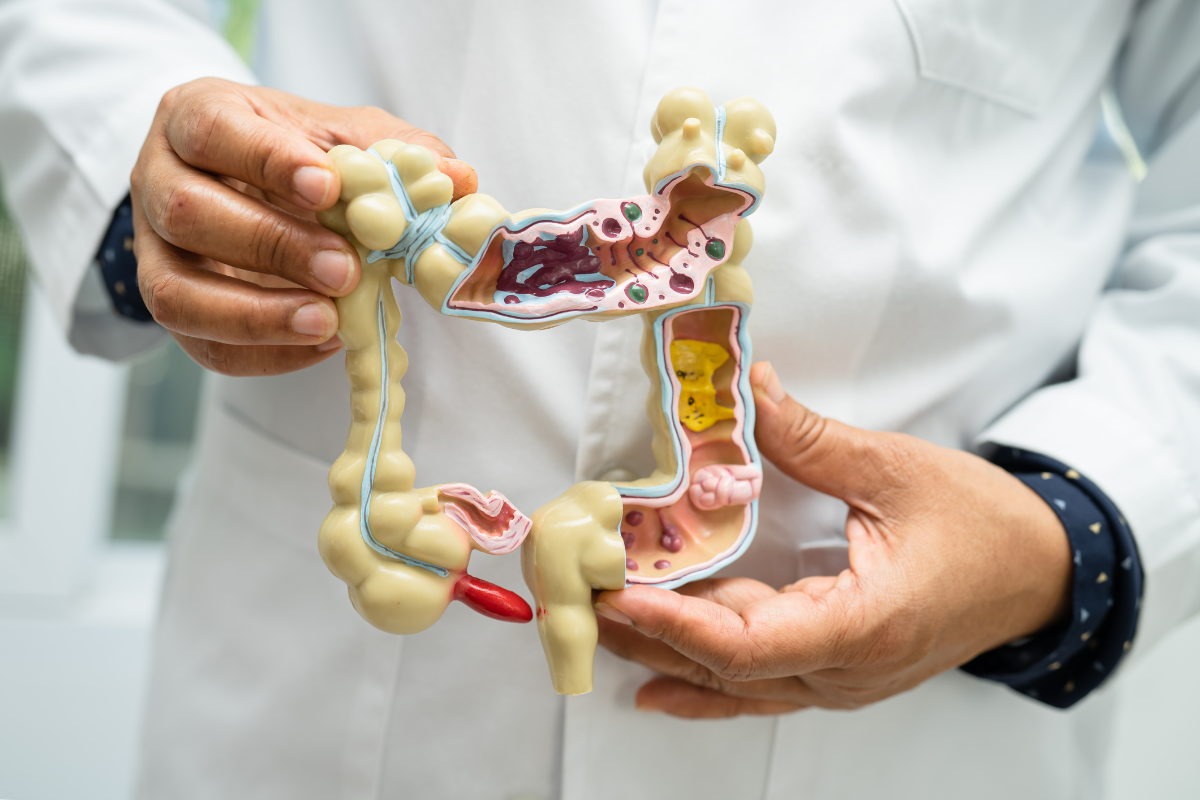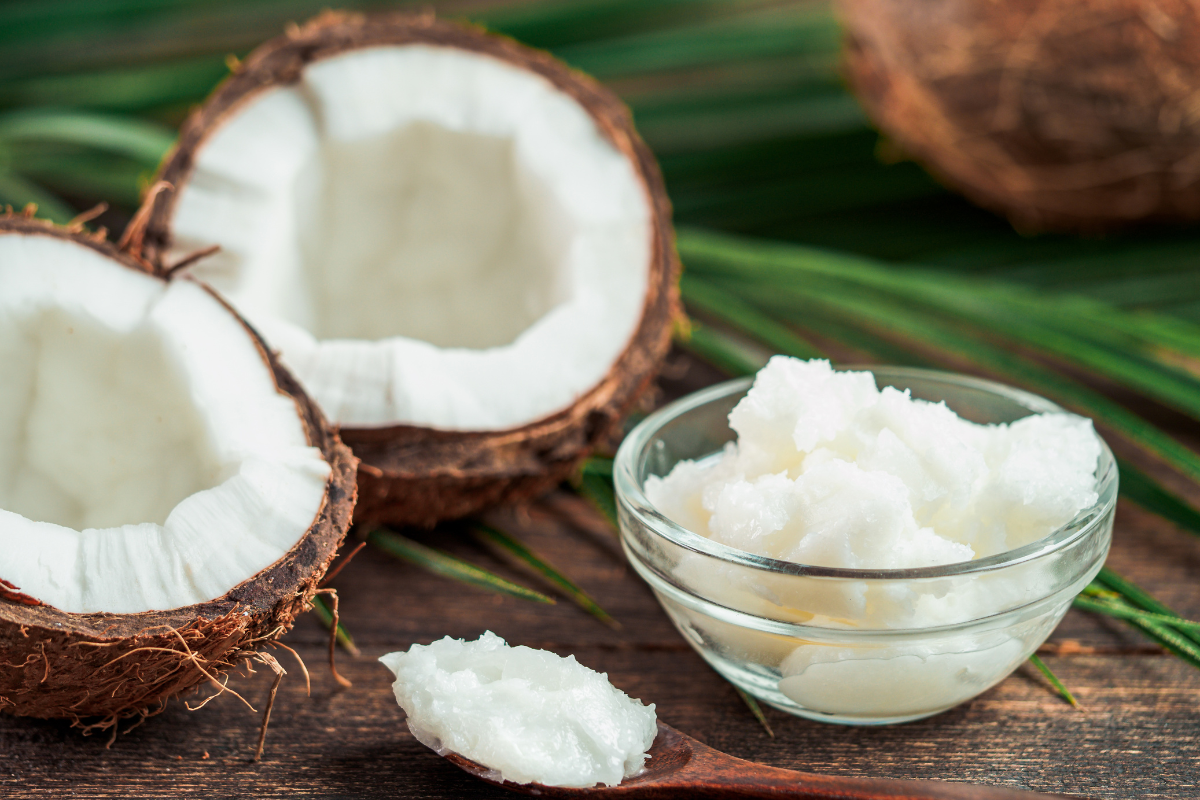Gut health - signs of an unhealthy gut

Gut health - signs of an unhealthy gut
Microlexicon
Microbe, collective name for microorganisms such as bacteria, fungi and viruses.
Microbiota/intestinal flora, the microbes present in a certain place constitute a microbiota.
Microbiome, the genes these organisms have .
Poor gut health can manifest as fatigue, upset stomach, skin conditions and autoimmune diseases and weakened immune system. Dietary supplements with probiotics (live bacteria), fermented foods (live bacteria), dietary supplements with prebiotics (dietary fiber, food for the bacteria) , hydration and stress management can help. Processed (ultra-processed) and sugary foods can affect the "good" bacteria in your gut.
The intestinal microbiota is all the bacteria and microorganisms that occur naturally in the stomach and intestinal system, also called intestinal flora.
What is gut flora and why is it so important?
The term "gut microbiota" refers to the microorganisms that live in your intestines. Each person has about 200 different species of bacteria, viruses and fungi in the gastrointestinal tract. Some microorganisms are harmful to our health, but many are incredibly useful and even necessary for a healthy body. Research suggests that a wide variety of bacteria in the gut can help reduce the risk of conditions such as:
- Diabetes
- Inflammatory bowel diseases (IBD) - Crohn's disease and ulcerative colitis together with microscopic colitis are collectively called inflammatory bowel disease (IBD).
- Psoriatic arthritis and other skin problems
In other words, your gut health is often related to your overall health.
How does gut flora affect your health?
The incredible complexity of the gut and its importance to our overall health is a subject of increasing research. Research over the past few decades has found links between gut health and mental disorders, autoimmune diseases, endocrine conditions, gastrointestinal disorders, cardiovascular disease, cancer, etc.
A higher diversity of the tapeworm bacteria may be associated with improved general mental and physical health.
Signs of an unhealthy gut
Many aspects of modern life can affect your gut flora, including:
- High stress levels
- Too little sleep
- A Western diet that contains a lot of processed/processed and sugary foods.
- Antibiotics
This in turn can affect other aspects of your health, such as: immune function, hormone levels, weight and the development of diseases. You may notice a number of different symptoms if you have impaired intestinal health.
Stomach upset can be a sign of an unhealthy gut. They include:
- Gases
- Bloated/swollen stomach
- Constipation
- Diarrhea
- Heartburn
A balanced and healthy gut will have less difficulty processing food and eliminating waste, likely leading to fewer symptoms.
A sugary diet
A diet high in processed foods and added sugars can reduce the amount of "good" bacteria and diversity in your gut. Research suggests that too much sugar can lead to increased inflammation throughout the body. Inflammation can be the precursor to several diseases, including cancer. If you eat large amounts of sugar, your gut health can be compromised.
Weight gain or weight loss
Gaining or losing weight without changing your diet or exercise habits can be a sign of an unhealthy gut. An unbalanced gut can impair your body's ability to absorb nutrients, regulate blood sugar and store fat. Weight loss can be caused by malabsorption due to small intestinal bacterial overgrowth (SIBO). On the other hand, weight gain can be caused by insulin resistance or increased inflammation.
Sleep disturbances or constant fatigue
Research suggests that an imbalance of gut bacteria can be linked to poor sleep and short sleep duration, which can lead to chronic fatigue. Although the cause remains unclear, it appears to be linked to inflammation, metabolic function and mental health.
Problems with the skin
Skin conditions such as psoriasis may be related to the types of bacteria found in the gut. Lower concentrations of beneficial bacteria can affect the body's immune system and your skin health.
Autoimmune conditions
Many studies have found connections between the gut and the immune system. An unhealthy gut can increase systemic inflammation and alter immune system function. This can lead to autoimmune diseases , where the body attacks itself, in other words, your body thinks its cells and organs are harmful invaders.
Food intolerances
Food intolerance is the result of difficulty digesting certain foods. This is different from a food allergy, which is caused by the immune system's reaction to certain foods. Research suggests that food intolerances, such as lactose intolerance, can be caused by poor quality of the bacteria in the gut.
This can lead to problems digesting the trigger foods, which in turn causes symptoms such as:
- Bloated stomach and swollen stomach
- Gases
- Diarrhea
- Abdominal pains
- Nausea
There is also some research indicating that food allergies may be related to gut health.
How do you improve your gut health?
You may be able to improve and restore your gut health through lifestyle and dietary changes. Consider trying one or more of the following to improve your gut health naturally:
Stop stressing
Chronically high levels of stress are negative for your entire body, including your gut. This is because your body releases certain hormones when it experiences stress. High levels of these hormones affect your body and can compromise gut health. Some ways to reduce stress can be meditation, walking, massage, spending time with friends, going to yoga, reducing alcohol intake, or anything else that makes you feel good!
Get proper sleep
Not getting enough sleep or having enough good quality sleep can have serious effects on your gut health, which in turn can contribute to increased sleep problems. Try to prioritize getting at least 7-8 hours of uninterrupted sleep each night.
Eat slowly
Chewing your food thoroughly and eating your meals more slowly can reduce your chances of developing obesity and diabetes while helping you make better food choices. This can help you reduce indigestion and maintain a healthier gut.
Stay hydrated
Drinking enough water may be linked to increased diversity of bacteria in the gut, although the source of the water also plays a role. One study found that people who drank adequate amounts of water had less bacteria of a type that can cause gastrointestinal infections. Staying hydrated benefits your overall health and can help prevent constipation. It can also be an easy way to promote a healthy gut.
Eat and drink prebiotics or probiotics
Taking a prebiotic food supplement or a probiotic food supplement can contribute to improved gut health. Prebiotics provide "food" intended to promote the growth of beneficial bacteria in the gut, while probiotics are live good bacteria. Probiotics in turn produce postbiotics*. People who have a serious illness or a weakened immune system should not take probiotics. Also, not all probiotic supplements are high quality or beneficial to your health.
*Postbiotics are the "waste" that is left behind after the body digests/metabolizes both prebiotics and probiotics. Healthy postbiotics include nutrients like vitamins B and K, amino acids, and substances called antimicrobial peptides that help slow the growth of harmful bacteria. Other postbiotic substances called short-chain fatty acids (acetate, propionate, and butyrate) help healthy bacteria flourish. You can increase the amount of useful postbiotics in your system by increasing your intake of fermented foods (probiotics) and dietary fiber (prebiotics). Focusing on getting enough foods that promote a mix of healthy gut bacteria can help improve overall health.
Prebiotics and probiotics are also found in certain foods
Probiotics are live microorganisms that have health benefits when consumed. These beneficial bacteria provide all sorts of powerful benefits for your body and brain. They can:
- Improve digestive health
- Reduce depression
- Promote heart health
- Increase immunity/improve the immune system
Foods with prebiotics:
- Chicory root (inulin)
- Dandelion leaves and dandelion root (inulin)
- Artichoke (inulin)
- Garlic (Garlic acts as a prebiotic by promoting the growth of beneficial bifidobacteria in the gut. It also helps prevent disease-promoting bacteria from growing).
- Onion (inulin)
- Asparagus (inulin)
- Barley (betaglucan)
- Oats (betaglucan)
- apple (pectin)
- Banana (inulin)
- Konjac root (glucomannan)
- Cocoa (cocoa contains polyphenols such as flavanols, which have antioxidant and anti-inflammatory effects. These compounds also help the growth of beneficial gut bacteria while reducing the growth of harmful bacteria).
- Burdock root (inulin)
- Flaxseeds (The fiber in flaxseeds promotes regular bowel movements, lowers LDL (bad) cholesterol and reduces the amount of fat you digest and absorb.
- Yuacon (inulin)
- Yam root (inulin)
- Wheat bran (wheat bran contains a special type of fiber that contains arabinoxylan-oligosaccharides (AXOS), which increases bifidobacteria in the gut, reduces digestive problems such as gas, cramps and abdominal pain. AXOS also has antioxidant and anticancer effects).
- Seaweed (Seaweed is rich in vitamins, minerals, antioxidants and polysaccharides, which benefit the immune system. About 50-80 percent of the fiber content of seaweed comes from soluble fiber. Polysaccharides found in seaweed can increase the production of short-chain fatty acids (SCFA), which nourish the cells found in your gut.
Foods with probiotics:
- Yoghurt
- File
- Kefir
- Sauerkraut
- Tempeh
- Kimchi
- Miso
- Kombucha
- Pickled vegetables
- Fermented milk
- Natto (fermented beans or grains)
- Certain types of cheese and cottage cheese
Check for food intolerances
You may have a food intolerance if you have symptoms such as: bloated and swollen stomach, abdominal pain, diarrhea, gas, nausea, fatigue and acid reflux.
You can try eliminating common trigger foods to see if your symptoms improve. If you can identify and avoid a food or foods that contribute to your symptoms, you may see a positive change in your digestion.
Change your diet
Reducing the amount of processed/processed foods (whole and semi-processed), sugary foods, artificial meal replacements, energy drinks and bars, can lead to better gut health. Eating a diet rich in fiber likely also contributes to a healthy gut flora. You can also have a positive effect on your gut by eating foods that are high in micronutrients called polyphenols found in, for example, vegetables, fruits, coffee and tea.
Different types of food for better gut health
Diet and gut health seem to be very closely linked. Avoiding processed foods and foods high in refined sugar is likely important for maintaining a healthy gut flora (microbiota), as these foods can promote the growth of harmful bacteria.
You can eat certain foods that actively promote the growth of beneficial bacteria, which contributes to your overall health. These superfoods for gut health include:
- Fiber-rich foods - research shows that fiber-rich foods have a positive impact on gut health. These foods include: legumes, such as black beans and chickpeas, whole grains such as oats, quinoa, vegetables such as broccoli and asparagus, nuts such as almonds and pistachios, fruits such as apples and peaches.
- Garlic – research shows that garlic can increase the good bacteria and increase their diversity, as well as improve gut health.
- Fermented Foods - Fermented foods are an excellent dietary source of probiotics. For example: kimchi, sauerkraut, yogurt and kefir. Research suggests that consuming these foods can improve gut flora.
- Collagen-Boosting Foods and Collagen Powder : Collagen-rich foods such as bone broth and salmon skin can be beneficial for both general health and gut health. A study showed that a dietary supplement with collagen powder can benefit the intestinal flora. To help your body produce collagen it needs vitamin C, try eating more citrus fruits, broccoli and other foods rich in vitamin C. Supplement with a collagen powder for better gut health.
Why does the intestinal flora vary between us humans?
Gut flora is affected by many factors, including: whether you were born via caesarean section or vaginally*, diet, environment, antibiotic use, sleep and genetics. All of this varies in different people, which affects their gut flora in different ways. This variation results in individuals having a unique gut flora.
* During a vaginal birth, the child is exposed to bacteria from the mother's/surrogate mother's vagina and intestine, in this way newborns ingest bacteria from the mother. This does not happen with a caesarean section.
How does the intestinal flora react to fasting?
Fasting appears to benefit gut flora, although more research needs to be done. According to a small study of 16 people, fasting was linked to lower levels of a bacteria that promotes colorectal cancer (There are many similarities between colon cancer and rectal cancer. Often the common term colorectal cancer is used for both cancers, where colon stands for colon and rectum for rectum). Animal research also shows the benefits of fasting. A study in flies found that intermittent fasting appeared to improve gut health and increase lifespan. Another study in mice showed that fasting promoted the growth of beneficial gut bacteria and reduced inflammation in the intestines.
How can I improve my gut health?
You can improve your gut health by taking steps to improve your overall health. This can include eating more fiber-rich foods, eating less ultra-processed foods and more raw ingredients, getting enough sleep, and managing your stress levels.
What are the signs of an unhealthy gut?
Some signs of imbalanced gut bacteria can be an upset stomach, unintended weight changes and fatigue.
A healthy gut contributes to: a strong immune system, healthy heart, brain health, improved mood, healthy sleep, efficient digestion, potential prevention of certain cancers and autoimmune diseases. Lifestyle and dietary changes can positively affect not only your gut health but also your overall health.
Bacteria are found all over our body
The intestines. Around 80 percent of the bacteria that live in our body are found in the intestinal system. Several common intestinal diseases are due to a disturbed balance of the microbiota (intestinal flora). Researchers have shown in experiments on mice that intestinal bacteria can also affect the brain development of the animals and that they have effects on their social behavior.
The mouth. The bacteria in the mouth live in a complex interaction with each other. Sugar and smoking are examples of environmental factors that lead to altered microbiota (intestinal flora).
Vaginal flora. In the vagina there are bacteria that, by lowering the pH value, make the environment inhospitable to other harmful microbes.
The skin. The microbiota on the skin is influenced, among other things, by where we live. Those who live in the countryside have a more varied composition than those who live in cities, and this is positive for their health.










